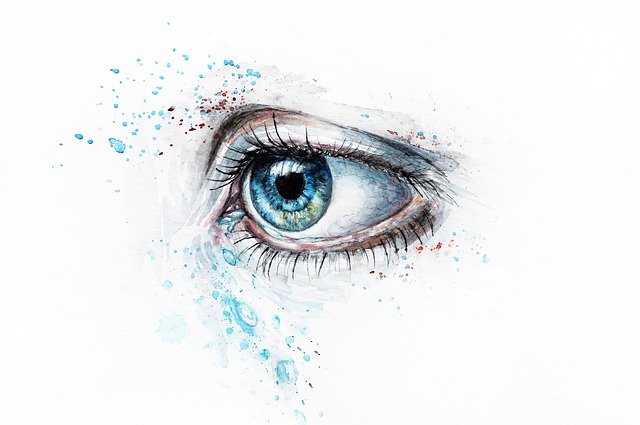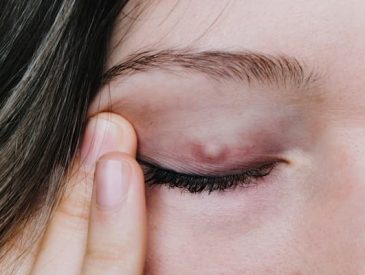To begin with, can you drive with dilated eyes? It is not advised that you.
You’ll have poor vision, so some experts advise that you drive safely and refrain from doing so. According to others, it depends on how at ease you are with the effects of dilation.
I’ll go into greater detail about whether can you drive with dilated eyes.
Table of Contents
What Is Eye Dilation?
An essential part of a thorough eye exam is dilation, which enables medical professionals to spot and treat eye conditions they might otherwise not notice. Utilizing specialized eye drops for dilation either causes the muscles surrounding the pupil to contract or causes the muscles to relax, allowing the pupil to open.
It typically takes 20 to 30 minutes for the eyes to dilate after the dilation drops are applied. The eyes are then examined, which only takes 5 to 10 minutes. For four to six hours, the pupils will stay dilated or larger than normal. Your vision might become slightly blurry at this time, and you’ll be more sensitive to light. Compared to children, who can be sensitive to light for up to 24 hours, adults’ sensitivity to light does not last as long. Additionally, those with lighter eyes are more sensitive than those with darker eyes. Usually, within an hour, vision returns to normal.
It is up to each individual whether they choose to drive after having their eyes dilated; there is no set amount of time that they must wait. Many patients who have had their eyes dilated do drive themselves, but it’s important to keep in mind that you will be sensitive to light and that your vision may be a little blurry. After your test, you ought to don some dark sunglasses. We care about your safety, so please make arrangements for a friend or family member to drive you home if you don’t feel confident behind the wheel.
Why Is Eye Dilation Performed?
When it is dark outside, your eye pupils are designed to expand, and they contract when it is light outside. It’s how your eyes ordinarily look after themselves.
The issue is that your optometrist will need to expose your eyes to light during an eye exam if they want to spot any potential problems. They have drops that will make your pupils stay open despite your inability to control them.
According to WebMD, dilation has a lot of advantages. It enables even issues at the back of your eye to be seen by your ophthalmologist. This is helpful when looking for eye tumors, detached or torn retinas, and many other eye diseases that could endanger the health of your eye.
Additionally, you might not be aware that you have an issue with your macula, retina, or optic nerves. After all, issues in those areas are frequently painless. You might not even realize that your vision is getting worse until it is too late to do anything about it. Driving may become risky in the future as a result. See more about What Not To Do After Eye Dilation?

Can You Drive With Dilated Eyes?
Consider a few things before you leave for the day after your exam to decide what’s best for you.
Your first time? If you’ve never had your pupils dilated, it’s impossible to predict how your eyes will respond. So it’s probably best to make arrangements for a ride home.
Bring shades. Your eyes may not be harmed by sunlight or any other bright light when they are dilated, but they may feel uncomfortable. For the ride home, bring some sunglasses to reduce the glare.
Chill out. After your examination, if you’re not in a rush, spend some time in the doctor’s waiting area to let the eye drops wear off.
What else has an impact on your vision? Dilation will only worsen any existing medical conditions you may already have, such as glaucoma or cataracts, which impair your vision.
Know how you drive. Driving while your eyes are dilated is probably not a good idea if you’re not normally at ease behind the wheel.
Keep in mind the road conditions. It’s more difficult to see in the rain, snow, or at night, even without dilated eyes. Get someone else to pick you up if the circumstances aren’t ideal.
Ask if you can anticipate having your pupils dilated during the exam when you make your appointment. Knowing what preparations to make in advance will be made easier by this.
Does Having Dilated Eyes Prevent You From Doing Anything?
Most adults typically have clear vision within an hour of having their eyes dilated, according to the Medical Eye Center. For fewer than six hours, most adults are sensitive to light. Light-eyed adults may need to wait a little longer for their vision to return, but you shouldn’t be affected for very long. For up to 24 hours, children may be sensitive to light.
In actuality, nobody can predict how your experience with eye dilation will feel for you. We are unsure of the extent to which your eyes will be impacted. Since some tasks may be more difficult to complete immediately after eye dilation, you can choose to bring a companion if you need someone to drive or to enlist their assistance in other ways if it is your first time having the procedure.
You should typically anticipate some blurriness in your vision, especially at close range. If you try to read or check your social media timeline on your phone or another mobile device, this will be especially obvious. For the majority of people, this should only be a brief issue. See more about Why Do My Eyes Burn When I Cry?
Is There Anything You Shouldn’t Do With Your Eyes Dilated?
After having their eyes dilated, the majority of adults typically have clear vision within an hour. For fewer than six hours, most adults are sensitive to light. Although adults with light-colored eyes might need to wait a little longer for their vision to return, it shouldn’t keep you from seeing clearly for too long. For up to 24 hours, children may experience light sensitivity.
In actuality, nobody can predict how your experience with eye dilation will feel for you. Your eyes’ level of vulnerability is unknown. Since some things can be more difficult to do immediately after eye dilation, if it is your first time having it done, you can choose to have someone go with you if you need them to drive or get their help in other ways.
You should typically anticipate having slightly blurry vision, especially for close-up work. This will be especially obvious if you try to read or use your phone to check your social media timeline. For the majority of people, this should only be a short-term issue.

How Dilation Affects Your Vision?
Your doctor will dilate your eyes by using specialized drops to open your pupils wide. This gave them the opportunity to examine your entire eye, including all of the nerves and blood vessels in the back, to look for disease symptoms.
The duration of the drops your doctor uses ranges from 4-6 hours, occasionally longer. Thus, instead of closing up to block out light in bright areas as they normally would, your pupils remain open. Your vision becomes hazy as a result of the glare. If you choose to drive before the drops have worn off, you won’t be able to see things as clearly as usual and it will seem much brighter than usual, especially outside in the sunlight.
Tips For Managing Eye Dilation Side Effects
After your appointment, it’s crucial that you look after your eyes and yourself because dilation can lead to blurred vision and light sensitivity.
- Have a friend or member of your family drive you home after your appointment, or use a taxi. When experiencing dilation, many people choose to drive themselves home if they feel confident doing so.
- After your appointment, bring sunglasses to protect your eyes. Your eyes could be damaged by the sun. If you need sunglasses after dilation, your doctor’s office may provide them, but it never hurts to have your own.
- If you can, take a few hours off from work. It’s crucial to avoid straining your eyes while reading, even though it might be difficult.
Conclusion
Can You Drive With Dilated Eyes? It was the main topic of the article.
Your vision will temporarily become blurry and more sensitive to light if you use eye drops to dilate your pupils. It might be more comfortable for you to bring a companion to the office who will then drive you home. Most people typically experience the main effects of eye drops for 3 to 4 hours. We suggest you bring sunglasses.
Please leave a comment if you have any further questions.
Regarding your reading, I thank you.





